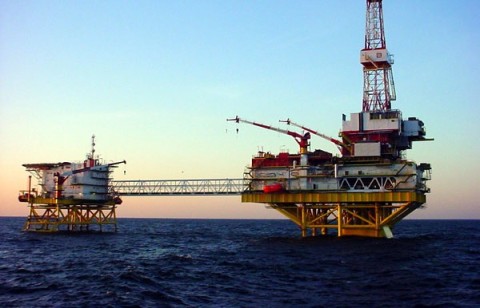OPEC Extends Nigeria’s Exemption On Oil Production Cut
Business News, Government Buz, Latest Headlines Friday, September 22nd, 2017
(AFRICAN EXAMINER) – The Joint Organization of Petroleum Exporting Countries OPEC and non-OPEC Ministerial Monitoring Committee, JMMC has extended the exemption granted Nigeria on the output cut which was imposed on member countries in January 2017.
The meeting of the body which held Friday in Vienna, Austria, upheld Nigeria’s position that the exemption, which was extended by another six months last May, should be sustained until the country’s oil production stabilizes.
The extension of the exemption period translated to more revenue earnings from oil exports by Nigeria, as the country would be able to export all the oil it produces as oil prices fluctuate around $57 per barrel.
The Minister of State for Petroleum Resources who led the country’s delegation at the meeting in Vienna, Dr. Ibe Kachikwu, had reportedly argued that in spite of the fact that the country was making considerable progress since October 2016 in its production recovery efforts, still, that was not enough as full stability is yet to be attained.
“Although Nigeria’s oil production hit 1.802 million barrels per day in the month of August, that was not enough justification for a call by some countries for Nigeria to be brought back into the fold,” Mr. Kachikwu pointed out.
Mr. Kachikwu said Nigeria was bound by whatever agreements and resolutions collectively made by OPEC, including the need to cap its oil production when it has stabilized at 1.8 million bpd.
He added that although Nigeria was not a member of the five nation of JMMC, yet, the country was in support of and had confidence in the work of the committee to stabilize the market.
The Report of the monitoring committee for August 2017 however showed the OPEC and participating non-OPEC producing countries recorded the highest level of compliance ever since the agreement came into effect in January 2017, with voluntary adjustments in production attaining over 116 per cent level.
The JMMC was set up following OPEC’s 171st Ministerial Conference on November 30, 2016.
The initial production cut agreement, which came into effect January 1, 2017, was for six months. The second joint OPEC-Non-OPEC Producing Countries’ Ministerial meeting on May 25, 2017 decided to extend the voluntary production adjustments for another nine months effective July 1, 2017.
At the Friday meeting, the JMMC hailed the participation of Iraq, Libya and Nigeria, and the reaffirmation of their commitment to work closely with other participating producing countries to ensure the success of the Declaration of Cooperation.
The President of the OPEC Conference, Khalid Al-Falih, who is also the Saudi Arabian Minister of Energy, Industry and Mineral Resources, expressed his solidarity with the JMMC and reiterated the commitment of his country to the success of the agreement.
He however cautioned against complacency and stressed the need for additional work by under-performing participating countries to raise their levels of compliance to 100 per cent.
Recent market inventory confirmed global oil demand growth in 2017 was now better than expected, with 2018 world oil demand anticipated to be robust.
Related Posts
Short URL: https://www.africanexaminer.com/?p=40877






















